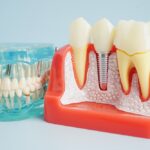Introduction
A bright, white smile has become a symbol of confidence and beauty in today’s world. From social gatherings to professional settings, a dazzling smile leaves a lasting impression. Teeth whitening is one of the most popular cosmetic dental treatments, with both professional and at-home solutions available. While both aim to improve the appearance of your teeth, there are significant differences in effectiveness, safety, cost, and long-term results. This article explores professional vs. at-home teeth whitening solutions to help you make an informed decision.
What Causes Tooth Discoloration?
Before comparing whitening options, it’s essential to understand why teeth become discolored:
- Extrinsic stains: Caused by coffee, tea, wine, tobacco, and certain foods.
- Intrinsic stains: Resulting from genetics, medications, or trauma to teeth.
- Age-related discoloration: Enamel wears down over time, making teeth look yellow.
Both professional and at-home whitening aim to reduce or eliminate these stains, but the approach and results vary.
Professional Teeth Whitening
What It Is
Professional whitening is performed by a dentist using stronger bleaching agents, such as hydrogen peroxide or carbamide peroxide, often combined with advanced technology like lasers or LED lights.
Advantages of Professional Whitening
- Faster results: Noticeable changes within one session.
- Customized treatment: Tailored to your teeth and gum sensitivity.
- Long-lasting effects: Results can last up to a year or more with proper care.
- Safe procedure: Supervised by a professional to minimize risks.
Disadvantages of Professional Whitening
- Higher cost: Ranges between $300–$1,000 depending on the clinic.
- Temporary sensitivity: Some patients may experience gum or tooth sensitivity.
- Multiple visits: In some cases, follow-up treatments are required.
At-Home Teeth Whitening
What It Is
At-home whitening includes over-the-counter products like whitening strips, gels, toothpaste, and custom trays provided by a dentist for home use.
Advantages of At-Home Whitening
- Affordable: Costs significantly less than professional treatments.
- Convenient: Can be done anytime at home.
- Variety of options: From whitening toothpaste to LED whitening kits.
Disadvantages of At-Home Whitening
- Slower results: May take weeks to notice visible changes.
- Less effective on deep stains: Works best on mild to moderate discoloration.
- Risk of misuse: Overuse can damage enamel or irritate gums.
- Shorter-lasting effects: Results may fade within a few months.
Professional vs. At-Home Whitening: A Comparison Table
| Feature | Professional Whitening | At-Home Whitening |
|---|---|---|
| Cost | $300–$1,000 | $20–$200 |
| Time Required | 1–2 hours per session | Several weeks |
| Effectiveness | High (up to 8 shades) | Moderate (2–4 shades) |
| Longevity | 6–12 months+ | 2–6 months |
| Safety | Dentist-supervised | Risk of misuse |
| Convenience | In-office only | At home anytime |
Which Whitening Option Should You Choose?
- Choose Professional Whitening if:
- You want fast, dramatic results.
- You have deep stains or discoloration.
- You prefer a safe, dentist-supervised process.
- Choose At-Home Whitening if:
- You’re on a budget.
- You have only mild discoloration.
- You’re willing to wait longer for gradual results.
Tips for Maintaining a Whiter Smile
Regardless of which whitening method you choose, maintaining your results requires consistent care:
- Brush and floss daily.
- Limit coffee, tea, red wine, and tobacco.
- Drink water after consuming stain-causing foods.
- Schedule regular dental cleanings.
- Use touch-up whitening products as recommended by your dentist.
Conclusion
Both professional and at-home teeth whitening solutions can brighten your smile, but the best choice depends on your needs, budget, and lifestyle. Professional whitening offers faster, longer-lasting, and more dramatic results, while at-home whitening is more affordable and convenient. For the safest and most effective outcome, consulting with your dentist is always the best approach.
Frequently Asked Questions (FAQs)
1. Is teeth whitening safe for everyone?
Teeth whitening is generally safe, but people with gum disease, cavities, or highly sensitive teeth should consult a dentist before treatment.
2. How long do whitening results last?
Professional whitening can last up to a year, while at-home whitening typically lasts a few months.
3. Can whitening damage tooth enamel?
When used correctly, whitening products are safe. Overuse, however, can weaken enamel and cause sensitivity.
4. What’s the best at-home whitening method?
Whitening strips and dentist-prescribed trays tend to be more effective than toothpaste alone.
5. Can natural remedies whiten teeth?
Baking soda and oil pulling may help reduce surface stains but are less effective than professional or commercial products.











